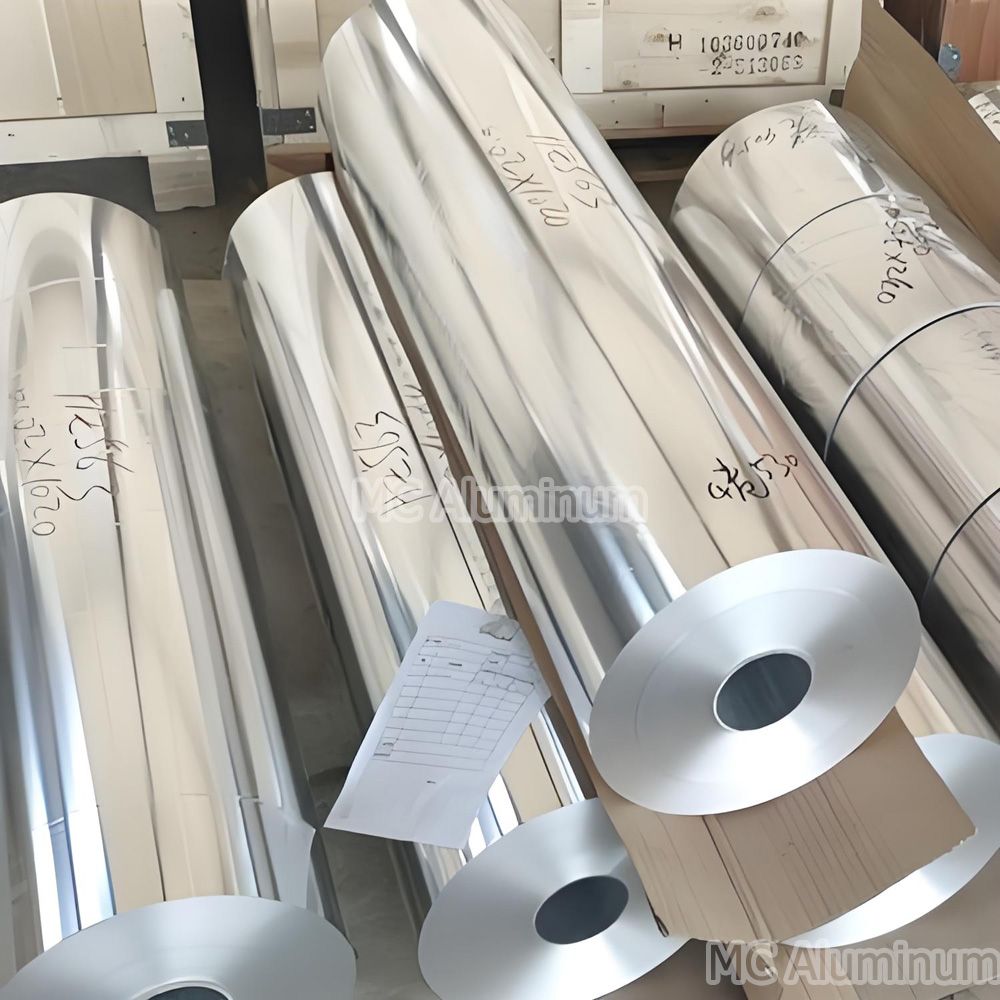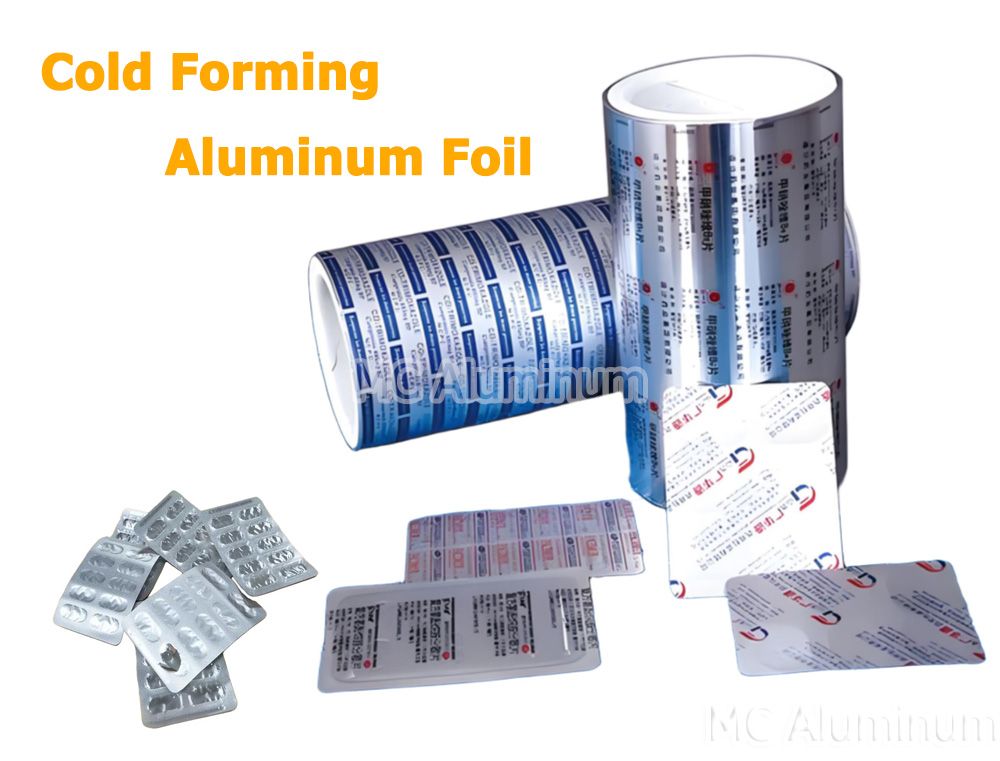What is Cold Forming Aluminum Foil?
Cold forming aluminum foil, also known as cold stamping foil or cold forming pharmaceutical foil, is widely used in blister packaging due to its excellent barrier properties and sealing performance. In this type of packaging, each tablet or capsule is individually sealed in a small cavity and can be extracted only by pressing with a finger. This process places very high demands on the foil’s formability, toughness, and puncture resistance.

8011 aluminum alloy, due to its unique chemical composition (primarily aluminum, supplemented by elements such as iron and silicon) and excellent mechanical properties (good ductility, high strength, and outstanding corrosion resistance), is an ideal material for cold-formed aluminum foil. This alloy is particularly suitable for pharmaceutical blister packaging (such as PTP aluminum foil), food packaging containers (such as lunch boxes and lids), and other industrial applications requiring high barrier properties and complex forming. With appropriate annealing treatment (such as the O-temper), 8011 aluminum foil achieves excellent deep-drawing properties, meeting demanding stamping requirements (such as depths exceeding 4mm) while ensuring long-term protection of the contents.
8011 alloy aluminum foil typically has a thickness of several tens of microns, with finished products typically exceeding 300mm. The core has an inner diameter of 76mm and an outer diameter of up to 500mm. With a thickness tolerance of no more than 5%, it is well suited to cold-formed pharmaceutical applications.
Why Is 8011 Alloy an Ideal Choice for Cold Forming Foil?
1. Excellent Formability: 8011 alloy is easy to roll, bend, and stamp without compromising strength. In O-temper, it offers high elongation, which is essential for deep drawing.
2. Good Strength: Depending on cold working and heat treatment, tensile strength ranges from moderate to high (about 85–120 MPa in O-temper, up to 160–180 MPa in H18), providing the necessary structural support after forming.
3. Superior Barrier Properties: 8011 foil effectively blocks moisture, oxygen, light, and microorganisms, ensuring maximum protection for pharmaceuticals and food products, thus extending shelf life.
4. Outstanding Corrosion Resistance: Excellent resistance to chemicals guarantees product safety and stability during storage and transport.
5. Non-toxic and Hygienic: 8011 alloy is odorless, tasteless, non-toxic, and meets food and pharmaceutical safety standards, making it suitable for direct contact.
6. Good Thermal and Electrical Conductivity: While mainly valued for its barrier and forming properties, 8011’s thermal conductivity also makes it suitable for heatable food packaging (e.g., oven use).

Requirements for Alloy Selection in Cold Forming Foil
Thickness: Typically around 0.06 ± 5% mm, ensuring uniformity and processing precision.
Alloy Temper: O-temper is usually preferred due to its high ductility and workability.
Mechanical Properties: Cold forming foil requires sufficient tensile strength and elongation to prevent tearing or breakage during processing and use. Typical values are tensile strength 100-120 MPa, elongation 9-12%, and an Erichsen value above 6.5 mm.
Surface Quality: The foil surface must be clean, flat, and free from oil stains, bright lines, and inclusions. Pinholes must be minimized to ensure packaging integrity.
Dimensional Accuracy: Strict tolerance control is required to ensure compatibility in downstream processing.
Material Quality: High-quality raw materials are necessary to ensure corrosion resistance and long-term performance.
Hygiene: Must comply with FDA and GB 4806.3 standards for food-contact materials, ensuring safety and non-toxicity.
Other Alloys for Cold Forming Foil
Among the 1000–8000 series alloys, only the 1000 and 8000 series can be used in pharmaceutical packaging, with the 8xxx series offering the best performance for cold forming applications.
8021 Foil: The mainstream alloy for cold forming pharmaceutical foil, offering higher strength and superior ductility, suitable for deep blister cavities.
8079 Foil: Combines strength and ductility, often used as part of cold forming composite foil structures.
Conclusion
Yes, 8011 alloy is suitable for manufacturing cold forming aluminum foil.
Its excellent formability, barrier properties, strength, and safety standards make it a versatile choice for pharmaceutical blister packaging, food packaging, and other high-demand applications. Alongside 8021 and 8079, 8011 alloy plays a crucial role in the modern packaging industry.
